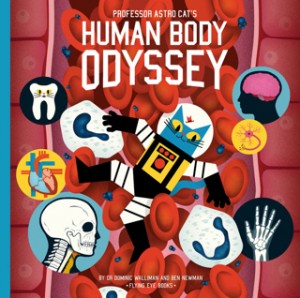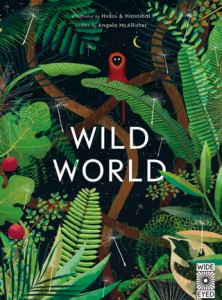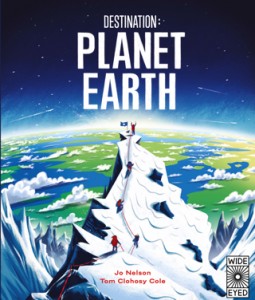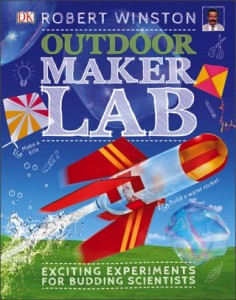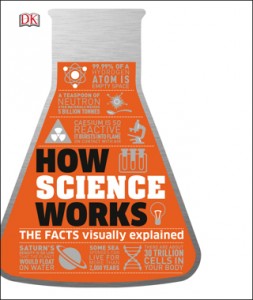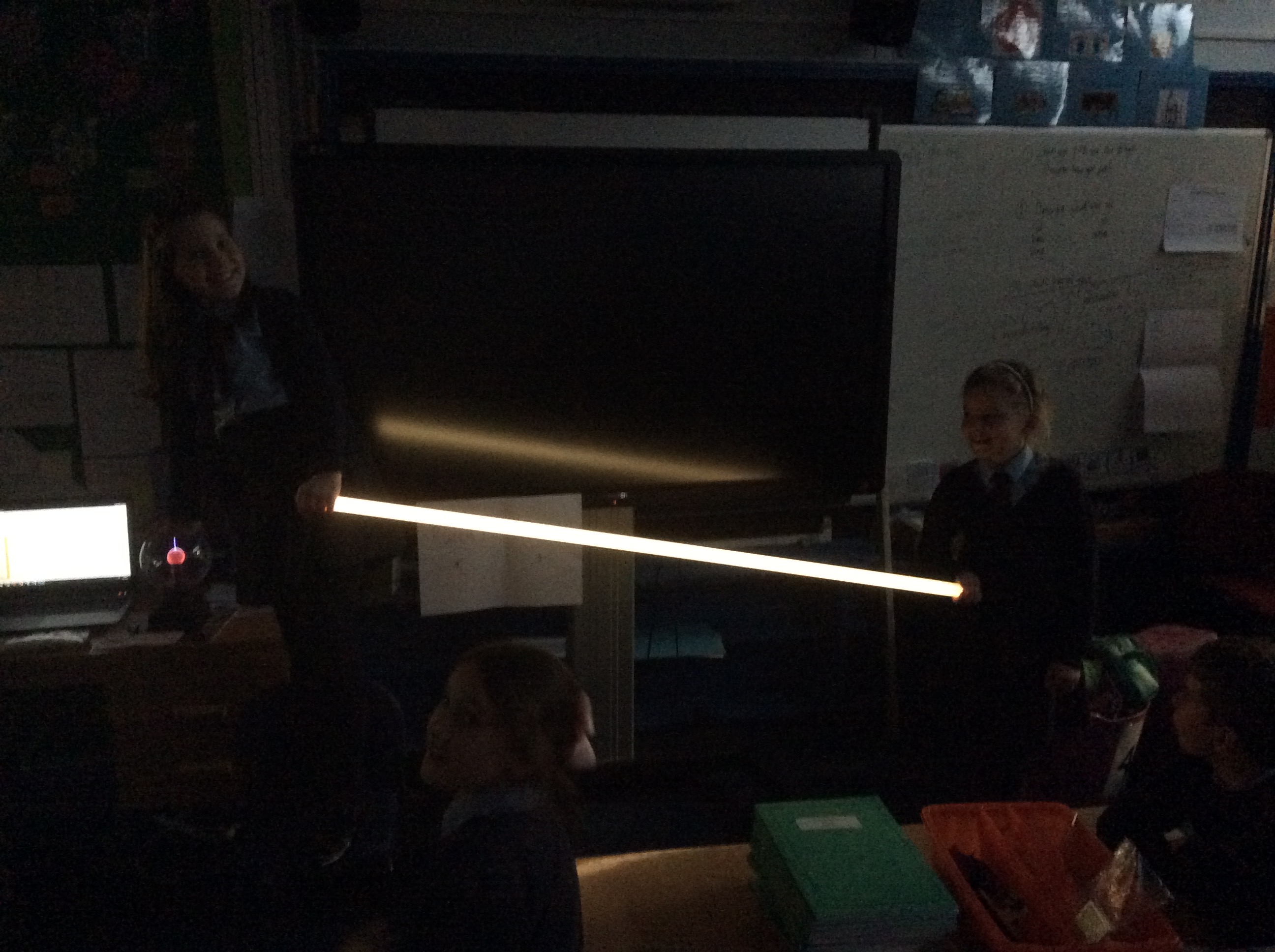Category: Science
Superb Science Book Ideas

This month at Lickey, we are lucky enough to have two exciting theme days – Reading and Science. Here are some excellent book ideas to engage your child in both of these exciting subjects.
|
Human Body Odyssey In this book, Astro Cat adventures into the Human Body. On each page he explains how a different bodily system works. by: Dr Dominic Wallman and Ben Newman |
|
Wild World Wild World uses poetry to describe habitats that children might find exotic. by: Angela McAllister |
|
Destination: Planet Earth This book will tell you all about Earth Science – perfect for our topics on volcanoes and the active planet! by: Jo Nelson and Tom Clohosy Cole. |
|
Outdoor Maker Lab A book filled with lots of experiments to complete with household items. Perfect for any budding chemist. by: Robert Winston |
|
How Science Works For Year 6+, this book explains how many different aspects of Science work for the older reader and adults. |
We hope you enjoy these suggestions.
Egg-perimenting
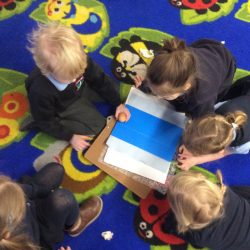
Reception had fun investigating some runaway eggs this week. We looked at how the eggs rolled down a slope and made predictions about what would happen if we changed the surface of the slope. The children tested lots of materials including plastic, rubber, carpet and wood before we finally held an egg race.
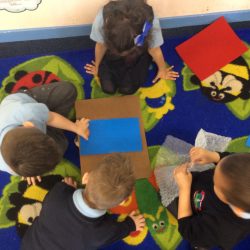
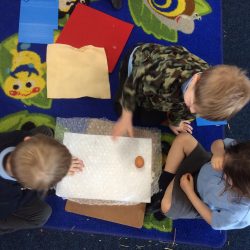
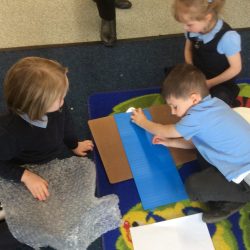
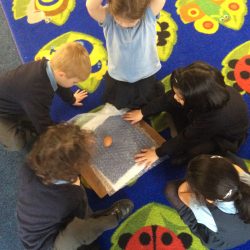
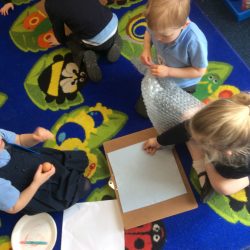
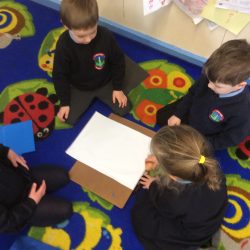
Science Club
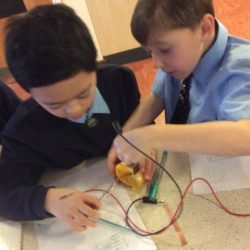
Eight excited scientists from Year 3 and 4 have had the opportunity to attend an after school science club at Waseley Hills High School this year. “It’s really good that the high school children help us,” said Lily.
So far they’ve explored acids and alkalines, used Bunsen burners to do flame tests, recreated the digestive system, learnt about the skeleton and created batteries from fruit. “We’ve learnt about lots of stuff like circuits and the digestive system,” explained Caitlin. “I loved colouring a flame with chemicals!”
They’ve grown so confident that some of them are now even explaining to everyone else how to set up electrical circuits. At this rate, they’ll be teaching the science lessons themselves!
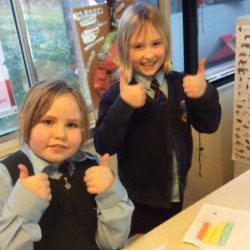
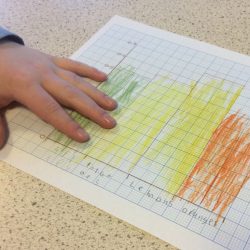
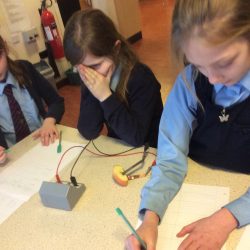
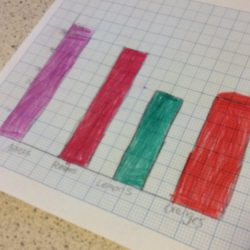
Turbine Power
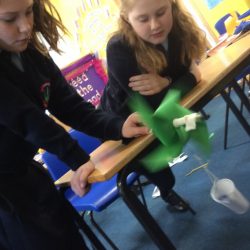
As part of their electricity in science topic, Year 6 looked at alternative ways of generating power. We then designed and made wind turbines and put them them to the test by using them to winch up increasing loads. We came up with a variety of solutions and whilst some span faster they were not as powerful when it came to doing work.
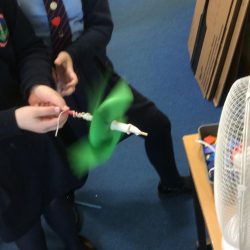

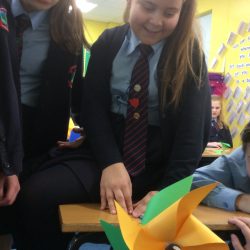
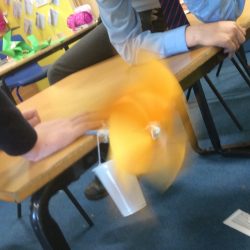
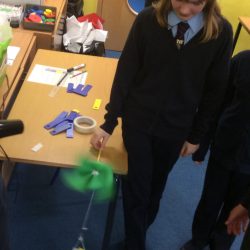
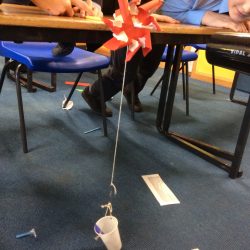
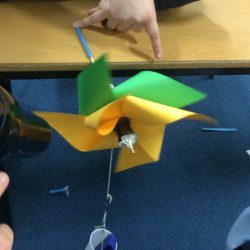
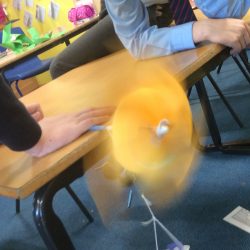
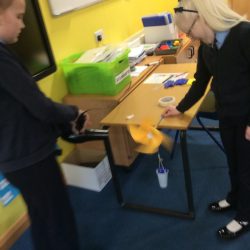
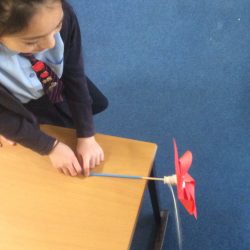
Geologists at Work
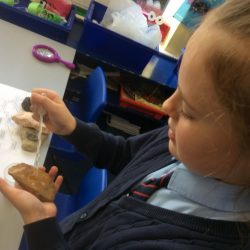
We’ve been using classification keys in order to identify different types of rocks. We had to look very closely at the structure of the rock and perform simple chemical tests with acid (vinegar). We then learnt about the rocks that make up our local volcano!
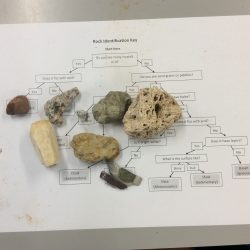
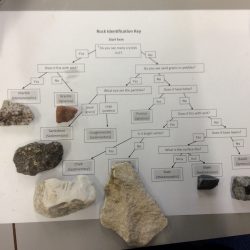
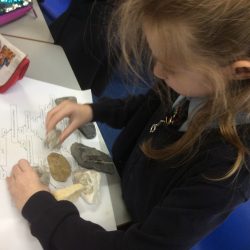
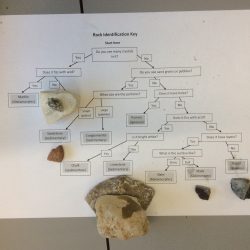
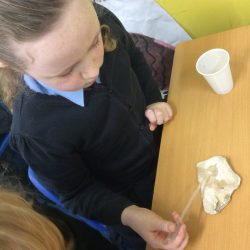
Electric Groceries
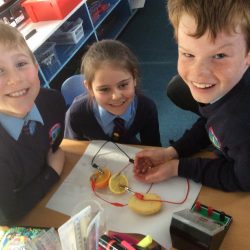
This week 4AB looked at the history of the battery, or the electric cell as we should call it, and it’s inventor, Alessandro Volta. We then investigated making our own cells from coins, zinc nails and everyday shopping items including lemons, potatoes, oranges and vinegar using a voltmeter to measure the flow of electricity. Even soil could be used to power a small LED although we’re not sure we’ll be able to power the school by connecting it to the school field.
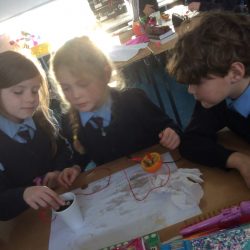
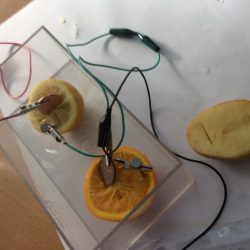
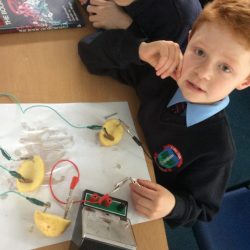
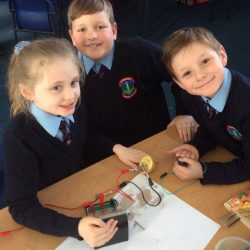
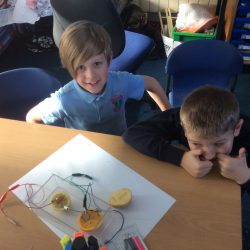
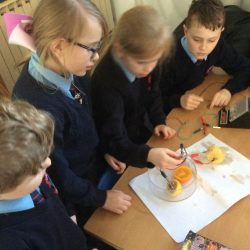
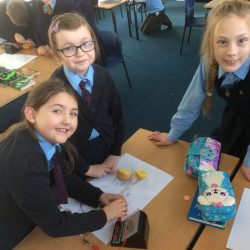
Rocking Year 3

We’ve beeen comparing different rocks and sorting them based on hardness. We rubbed them together to find out which was softest. We found that sedimentary rocks such as chalk and limestone tend to be softer, in fact that’s why chalk is so good for writing with.












Light Fantastic
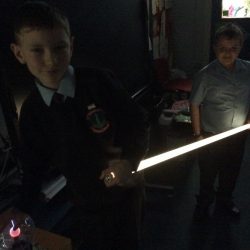
We’ve had fantastic fun creating circuits in Year 4. We’ve found that lights, motors and (our favourite) buzzers behave in different ways depending how we connect them up to the batteries, I mean cells. However, our favourite circuits were made using ourselves. We made a huge circuit using the whole class holding hands to make a buzzer sound and then we even lit up a whole strip light using our arms as wires. We think the new strips light must be really low energy!
Food Chains
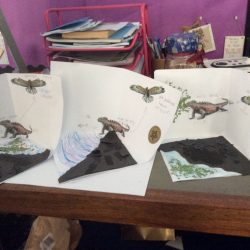
This week Year 2 followed in Charles Darwin’s footsteps and visited the Galápagos Islands. There we looked at the different reptiles on the islands, including snakes and giant tortoises, before concentrating on marine iguanas. We learnt that these lizards swim in the sea in order to graze on sea weed and algae. However, they face danger from above in the form of the Galapagos Hawk. We had fun making volcanic rock coasts in which to display our food chains.





Electrifying Year 6
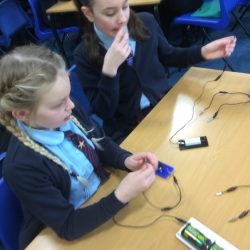
This term Year 6 are exploring electricity. We’ve started recapping circuits, including identifying what is wrong in some “dodgy circuits”, before starting to use formal symbols for circuit diagrams.








